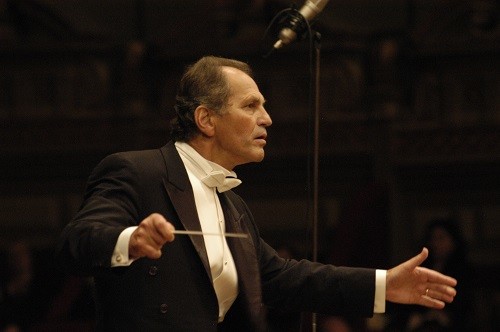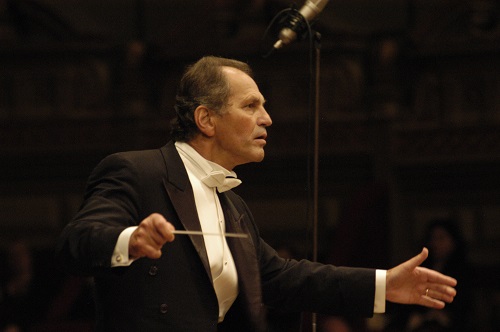 United Kingdom Debussy, Saint-Saëns and Brahms: Ian Fountain (piano), Royal Liverpool Philharmonic Orchestra / Cristian Mandeal (conductor), Guild Hall, City of Preston, 13.11.2016. (MC)
United Kingdom Debussy, Saint-Saëns and Brahms: Ian Fountain (piano), Royal Liverpool Philharmonic Orchestra / Cristian Mandeal (conductor), Guild Hall, City of Preston, 13.11.2016. (MC)

Debussy – Prélude à l’après-midi d’un faune
Saint-Saëns – Piano Concerto No. 2
Brahms – Symphony No. 3
My first look at Cristian Mandeal in concert, one of the most significant Romanian conductors of his generation, was a rewarding one. I know Sir Mark Elder rates Mandeal highly recently appointing him as principal guest conductor of the Hallé.
The choice of music couldn’t have been more appealing comprising three mid to late twentieth century works written only some twenty-five years apart. The Debussy and Brahms are popular staples of the orchestra repertoire together with one of the most charming concertos around which deserves to be heard more often.
Inspired by the Mallarmé poem L’après-midi d’un faune, featuring a faun dreaming of beautiful nymphs, Debussy with his Prélude à l’après-midi d’un faune created a landmark work in music. As recently as September I heard the Prélude à l’après-midi d’un faune played by the Berliner Philharmoniker under Andris Nelsons at Berlin (review). Clearly the symphonic poem is standard fare, a work which most orchestras know inside out, and Mandeal took great care to avoid any suggestion of routine. With complete assurance, he and his players drew out the haunting beauty and shimmering intimacy of Debussy’s mysterious, impressionistic soundworld. Particularly striking was the playing of the prominent flute together with the oboe and clarinet; all immaculate throughout.
Back in the 1980s I recall soloist Cécile Ousset playing Saint-Saëns’ Second Piano Concerto in Manchester, a work which made a big impression and sadly one I see programmed only occasionally. No French pianist had been booked this time for the Saint-Saëns and the soloist was Ian Fountain, a player I have seen several times in solo recital but never in concert performance. In Fountain’s hands this entertaining work just oozed with an allure and polish not just exclusive to Gallic players. Fountain’s innate sense of rhythm, overall phrasing and sense of momentum seemed ideal. In the Bachian flavoured opening movement with real fluency the soloist’s hands on occasions seemed to be floating effortlessly over the keys, the mercurial Scherzo was given irresistible joie de vivre and the finale: Presto nearly leaped off the page. One sensed that Fountain was buoyed by the steadfast support from the Liverpool players who never put a foot wrong.
After the interval came Brahms’ Third Symphony which the then fifty-year-old composer wrote largely during his summer vacation at the German spa town of Wiesbaden. Hans Richter who gave the première described the score as “Brahms’ Eroica” a moniker which hasn’t really stuck. Mandeal revealed a clear understanding of the music, so thematically lucid and structurally unified, which was evident from first to last. A judicious balance that the Romanian achieved with his Philharmonic players was conspicuous and the intelligent shifts of mood and tempi demonstrated his prowess. This was a reading of significant dramatic contrasts from the powerfully charged and menacing opening, to the warmly relaxed bucolic feel of the Andante, to the outburst of heroic fervour in the Finale. More could have been made of the string intensity in the Poco allegretto to achieve that aching emotional quality of the very finest performances.
This wasn’t the most thrilling Liverpool Phil concert I have attended but it was probably the most satisfying. I don’t think I have ever heard the orchestra perform with as much overall unity as this Preston Guild Hall concert.
Michael Cookson
